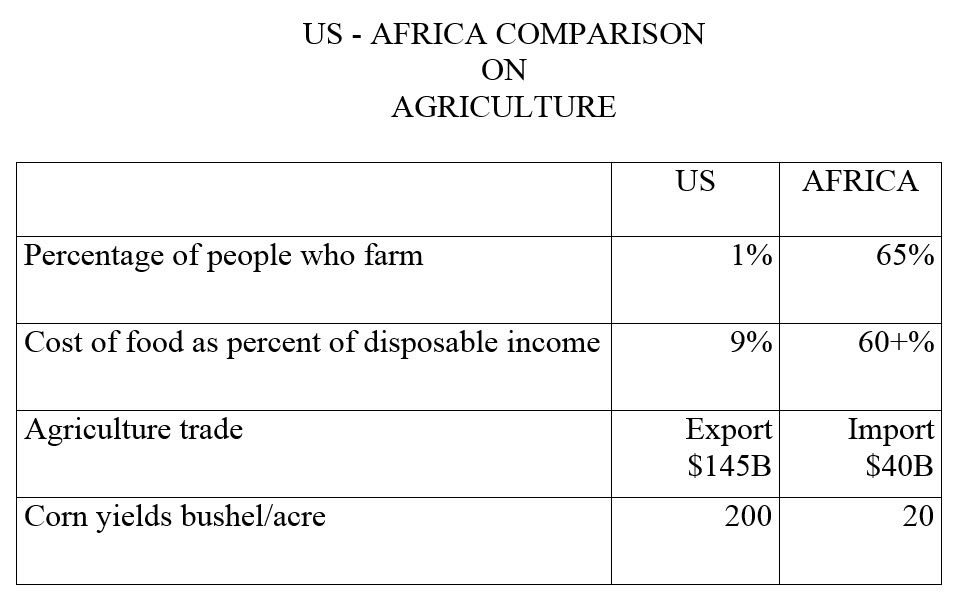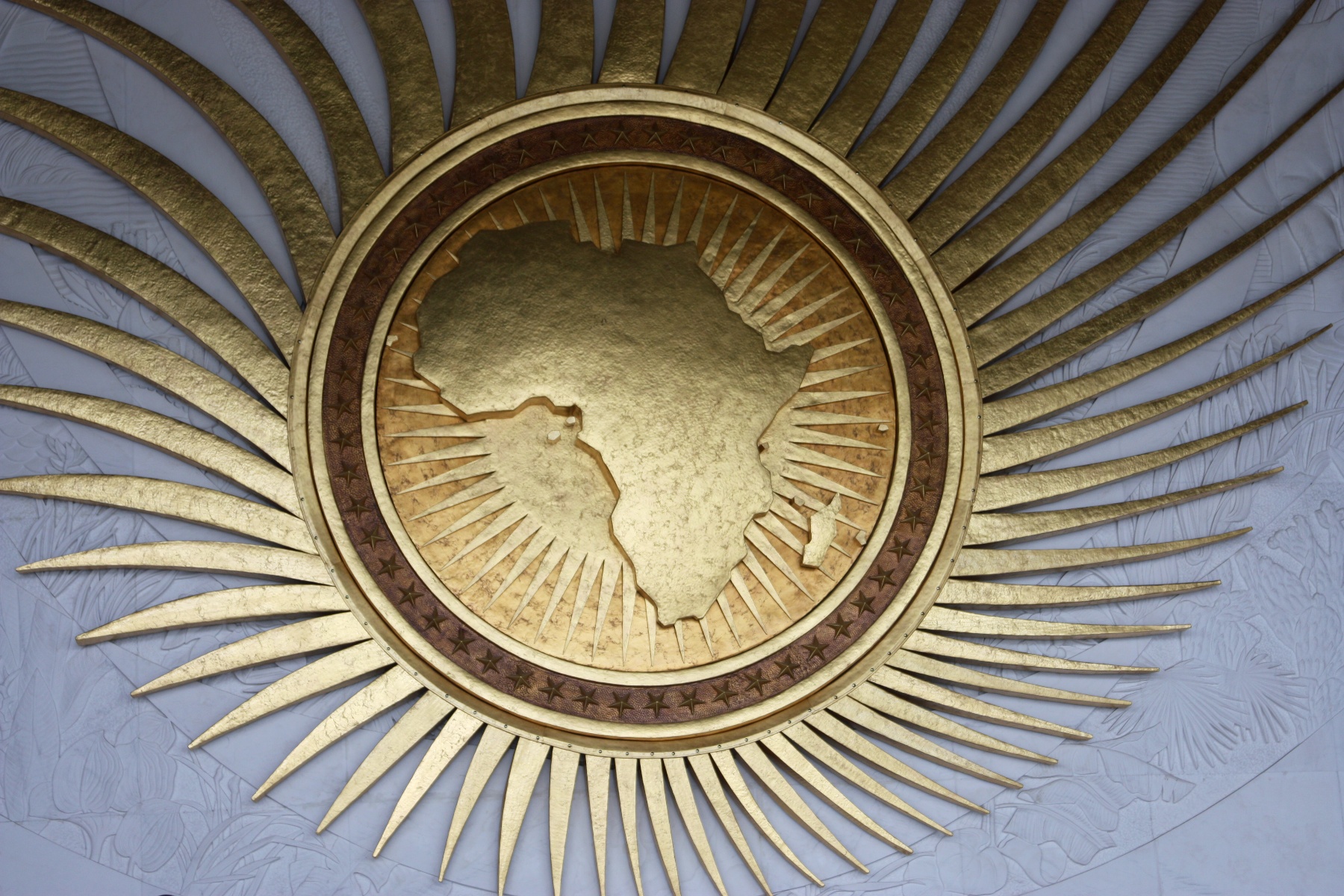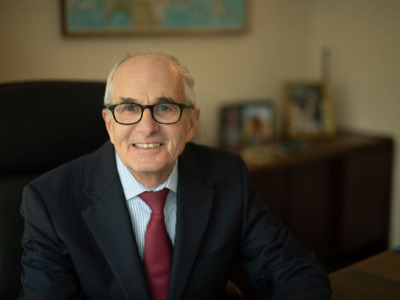In just the last two months the
White House has hosted an African Summit, the African Green Revolution Forum was
held in Ethiopia
bringing together 1000 public and private sector experts, and the focus at the
United Nations is “Climate Smart Agriculture.”
The goal, according to Kofi
Annan, the former Secretary General of the United Nations, is to double African
agriculture production in the next five years.
This would not only reduce hunger but it would catapult the African
economy. The good news is that Africa is on
its way to achieving this goal. If the goal is reached, it will help Africa and global food security too. (Don’t forget that Africa
has half of the underutilized farm land in the world.)
Mr. Annan’s goal is shared by
the African Union, the organization that represents Africa’s
54 nations. In the United States, 1% of the population feeds the
nation, and many other too; in Africa some 65%
of the population farms. While
American’s spend less than 10% of our disposable income on food, Africans must
devote the vast majority of their income to food. It is common for our farmers to yield some
200 bushels of corn per acre, while in Africa
20 bushels an acre is common.

The Bill and Melinda Gates
Foundation, along with the Rockefeller Foundation, have created the Alliance for a Green Revolution in Africa, AGRA, to coordinate a public-private effort to boost
agriculture production and grow Africa out of
poverty.
AGRA’s seed program has now released over 450 new
varieties carefully selected for their compatibility with the African
environment. The seeds include locally
adapted varieties of maize, rice, cassava, sweet potatoes, soybeans, bananas
and other African staples.
Other AGRA
programs focus on soil health, markets, capacity building, financing and public
policy in those countries that make up Africa’s
two “breadbaskets.”
“Africa has the resources
necessary to feed its population and to help feed the world as well” according
to Dr. Akin Adesina, the Minister of Agriculture in Nigeria. It is a rich continent
with poor people. Agriculture already
accounts for over one-third of Africa’s gross
national product. Further, agriculture has strong multiplier effects on employment
and is critical to achieving broad based economic growth, reducing poverty and
addressing youth unemployment.
While continuing to expand
seed production, markets and the other building blocks of modern agriculture
there are two major challenges.
The first challenge is to get
the modern seeds and other inputs needed to boost production to the smallholder
farmers that are the backbone of African agriculture. There are now some 20,000 local agro-dealers
in rural Africa. They are privately owned businesses…. mom and
pop agriculture stores reaching smallholder farmers in the local villages. Africa needs
200,000.
The agro-dealer network has
provided farmers with over 400,000 metric tons of seed and one million metric
tons of fertilizers. Farmers in Kenya,
Nigeria, Mozambique, Uganda
and Ghana
are reporting that improved hybrid seed varieties along with other inputs have
doubled harvests. Further, agro-dealers can
provide extension services to educate smallholder farmers on best practices and
tractors to help mechanization. It is
clearly time to replace hoes with tractors.
The other major challenge in Africa is government policy. While many African countries are responding
to the African Union’s call to allocate at least ten percent of their national
budgets to agriculture, more attention must also be given to consistent and
reliable government regulatory policies.
Trade within Africa must be made easier
and governments can also help with guaranteed financing for smallholder farmers
and other creative initiatives as well.
In Kenya, Governor
Mutua in Mackakos
County has purchased
tractors and is lending them to farmers for one day at a time.
In the United States it may be
understandable that we take agriculture and food production for granted. We are the most efficient country in the
history of the world when it comes to food production. Most of our political leaders, including
President Obama, come from our big cities.
But if we want to help Africa and its
emerging private sector economy we must give more time and thought to
agriculture. The African Growth and
Opportunity Act, AGOA, should be amended to provide Africa
with agriculture technical assistance. Bipartisan
legislation has been introduced in both the House and Senate to make the Feed
the Future initiative permanent. (S. 2909 and H.R. 5656) These bills should be enacted as a part of climate smart
agriculture initiative.
Africa
is on the cusp of great change with six of the ten fastest growing economies in
the world. It is agriculture that is going
to drive the next stage in Africa’s economic development, as it did in the United States
after President Lincoln created the Department of Agriculture and the land
grant universities. Africa
is developing improved seeds, using micro-doses of fertilizer exploring water
efficient irrigation. It is an African
smart unique green revolution. With over
half of the world’s unused farm land, Africa
is going to play a key role in the global food challenge.
According
to Forbes Magazine, Mr. Strive Masiyiwa is the Bill Gates of Africa. The Econet Wireless Group headed by Masiyiwa
and based in South Africa
now operates in 17 countries, employees 6,000 and generates $3 billion a
year. Yet, Masiyiwa is the first to say
that it is agriculture development that will drive the African economy.

Marshall Matz was Counsel to
the Senate Committee on Agriculture, Nutrition and Forestry. He serves on the Board of the World Food
Program—USA
and the Congressional Hunger Center.




